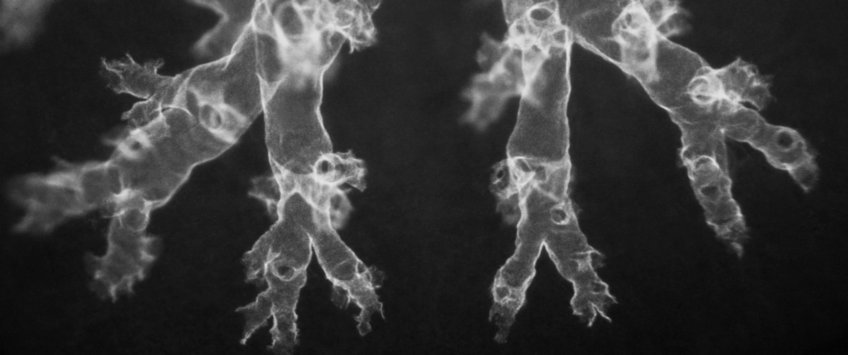
Workgroup Salwig
Cellular constituents of lung regeneration and tumorigenesis
Scientific focus
Due to constant exposure to potentially harmful air-borne pollutants and pathogens, lungs need a high regenerative capacity to rapidly replace lost or damaged cells. Efficient regeneration relies on the cooperative action of multiple – mostly regional – stem/progenitor cell populations.
Our main goal is to dissect the contribution of individual epithelial and mesenchymal stem cell subsets to regenerative processes in different pulmonary disease models (e.g. viral infection, fibrosis, toxin exposure, emphysema). We exploit innovative mouse models enabling the selective targeting of cell types that so-far escaped genetic manipulation – e.g. bronchioalveolar stem cells or branch-point associated progenitor cells – to resolve lineage-potencies and -relationships, to delineate stem cell niches in a spatial context, or to manipulate signaling cascades involved in e.g. self-renewal and cell-fate decisions. By single cell profiling approaches, we elucidate cell heterogeneity, study cellular interactions or investigate differential responses to regenerative cues. We utilize in vitro/ex vivo culture systems to explore the differentiation repertoire of epithelial progenitor cells or to test the supportive function of mesenchymal stem cell subsets and candidate therapeutic molecules. In addition, we study the development and progression of lung cancer, particularly the putative tumor-initiating potential and/or cancer stem cell characteristics of epithelial stem/progenitor cells.
Group members
Birgit Spitznagel – Lab manager
Ewelina Betleja – Postdoc
Keynoosh Khalooghi – PhD student
Chiara Mura – PhD student
Elena Baumtrog – student assistant
Younes Rami – student assistant